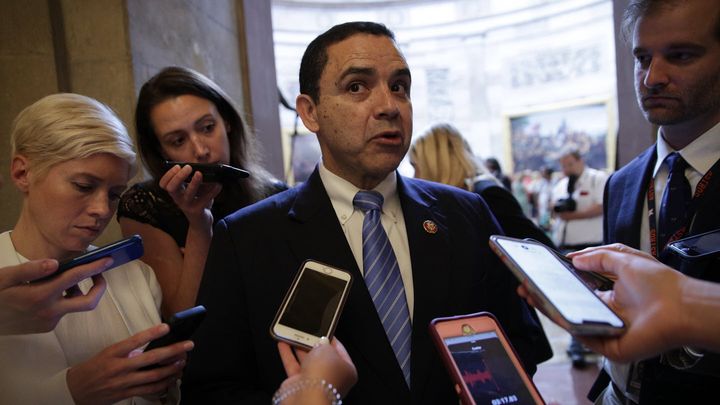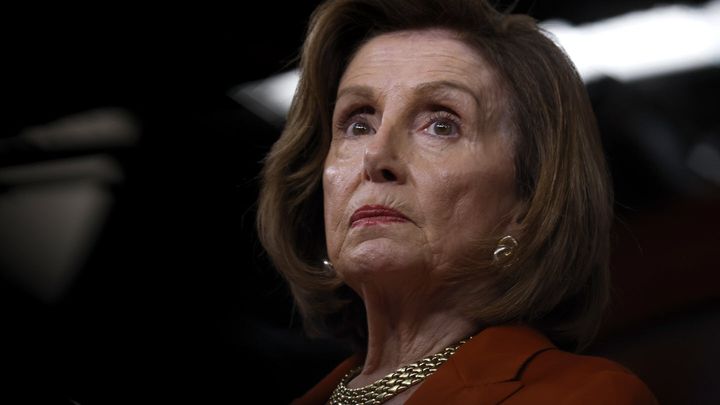In the final weeks before voters in Texas’ Twenty-Eighth Congressional District went to the polls in the Democratic primary between incumbent Rep. Henry Cuellar, one of the most conservative House Democrats, and progressive challenger Jessica Cisneros, a brand-new “dark money” group dropped hundreds of thousands of dollars worth of ads to boost Cuellar.
The shadowy group, calling itself American Workers for Progress, spent more than $720,000 on television ads and mailers promoting Cuellar’s work on health care issues. The group’s ads, in both Spanish and English, don’t specifically advocate for Cuellar’s re-election but instead tell voters to call him to say thank you, a move that allowed it to avoid reporting information about its activities to the Federal Election Commission. Its website contains no information besides a generic-sounding statement about “addressing economic challenges.”
Despite its name, American Workers for Progress is not affiliated with labor groups, and despite the content of its ads it does not have ties to health care advocates. According to tax documents reviewed by Sludge, it is heavily funded by the oil and gas industry, having received $1.3 million from the American Petroleum Institute in 2019.
The American Petroleum Institute did not respond to Sludge’s request for comment.
Cuellar defeated Cisneros in the primary by 3.6% of the vote and will begin his ninth House term in January.

Federal Communications Commission records indicate that American Workers for Progress’ president and board chair is Gilberto Ocañas, a former deputy director of the Democratic National Committee and the former vice finance chair of the Texas Democratic Party. Ocañas is an attorney with the Dentons law firm, which has an extensive oil and gas practice.
The American Petroleum Institute is a lobbying group that represents companies including Exxon Mobil, Shell Oil Company, BP America, and hundreds more in the oil and gas industry.
The oil and gas industry gave Cuellar $223,532 in 2019-20, making it his top donor industry of the cycle, according to the Center for Responsive Politics. PACs that maxed out to his campaign include those affiliated with American Petroleum Institute members like Chevron, Halliburton, Hess, and Phillips 66.
Cuellar is often called “Big Oil’s favorite Democrat,” and he has the voting record to back up that reputation.
In 2015, Cuellar worked with Texas Republican Rep. Joe Barton to lift the U.S. ban on crude oil exports that had been in place since 1975. In a Dallas News op-ed, Barton described how he searched for Democratic support for his bill because he knew it had to be bipartisan to pass the Senate and get President Obama’s support. Cuellar was the first Democrat to get on board with the effort, and he convinced the Democratic leadership not to whip the bill and allow members to vote however they wanted.
Cuellar routinely votes with Republicans on bills affecting fossil fuels. Last year, he voted with Republicans against protecting the Arctic Refuge from oil and gas extraction, against banning offshore drilling in the Atlantic and Pacific Oceans, and against a permanent moratorium on offshore drilling in the Gulf of Mexico. His lifetime score from the League of Conservation Voters is 45%, a lower score than some House Republicans.
Cuellar, a member of the House Oil and Gas Caucus, could play a more significant role on environmental legislation in the next session of Congress during which Democrats will have a slim majority and cannot afford many defections.
Cisneros would likely have been a reliable progressive vote on environmental issues. During her campaign she endorsed the Green New Deal resolution that calls for a 10-year national mobilization to achieve net-zero greenhouse gas emissions, create millions of high-paying jobs, prevent oppression of “frontline and vulnerable communities,” and secure the environment for generations to come.
Read more:



